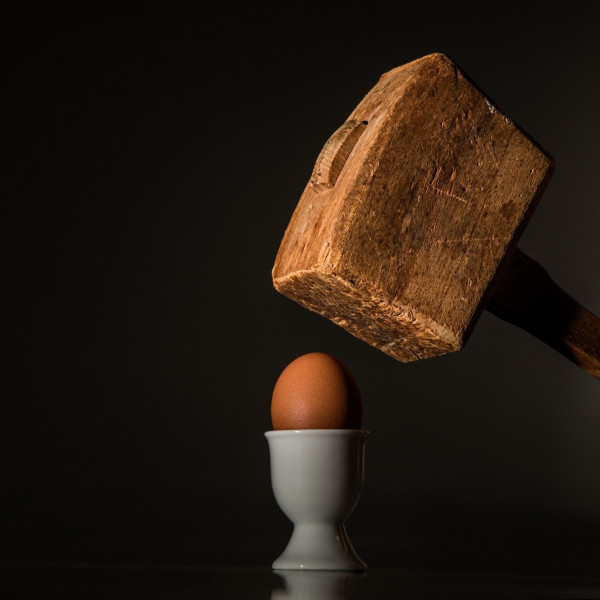Two Kinds of Power: Why Fascists Can't Make Art

I believe that there are two kinds of power in the universe. The first one is control—the ability to constrain action. The second one is freedom—the ability to act.
These two kinds of power are in deep conflict, locked together in an inverse relationship. The more control, the less freedom—the more freedom, the less control.
This is because in seeking to control others, you must first control yourself. You cannot control the outside without first engaging in a battle for control inside—and an internal battle for control has many causalities. The prisoners of that war are not quiet, and not peaceful, and you must be on constant guard duty.
Control can only limit, not compel. It can make sure someone has no escape, but it cannot make someone move forward. It can make sure someone doesn’t run away, but it cannot make someone produce an original idea. It can make someone stay, but it cannot make someone love.
The same is true of internal control. Willpower can prevent you from eating ice cream, but it cannot make you create a work of art.
You can probably think of counter-examples, but in those cases, you chose to act, to do something great, to move forward. No one and nothing could have compelled you, though they could have presented consequences too deep for you to want anything else.
Still, you had to find the want somewhere else. Even if your willpower was trying to control your hands, you had to find the drive to act in some other part of your mind.
My hypothesis is that the more willpower you use—the more control you seek over your internal workings—the less freedom to act you actually possess. The long-term use of willpower slowly strangles and kills off the freedom and ability to create.
Which isn’t to say do nothing. Quite the opposite. But looking for willpower and control to make you produce great work is looking to the wrong slave-master. It is seeking the wrong sort of power.
Fascists can’t make art. But they’re killer at design.
This is because art is creative work, while design is the application of rules. Fascists design everything from flags to uniforms to forests, while freer places struggle with unruly mixed genres and mediums.
If you want to produce something great, you must be drawn, pulled forward by something which compels of its own accord. And in that case, you will find yourself drawn towards freedom by freedom.
The freedom to act is also the freedom to live.
Holocaust survivors like Victor Frankl seemed to find incredible and unexpected ways to take action, even in the midst of unbelievable control. Even if the action was only in their mind, it was a surprising action, one neither defined nor anticipated by their environment.
Jesus advised his followers to do something similar. His instructions are often misread as directions towards passivity; in reality, they are anything but.
If a Roman soldier conscripts you into carrying his bags, don’t let him define the situation. Instead, when you come to the end of the road, keep going. Carry his bag the extra mile. Don’t let his power have the last word—instead, change the situation with your power.
Or, if someone sues you for the shirt off your back, go ahead and give him the rest of your clothes as well. Strip naked in court, hand him your underwear, and walk out as the court watches in shocked silence.
That last instruction doesn’t get quoted as much, but it captures the spirit of Jesus’ sayings perfectly. When they bring control, you bring playfulness and creativity; when they exert power, you redefine the situation.
Instead of fighting for control, you fight for possibility.
That might be one of the reasons Jesus is so frequently portrayed as a baby—babies embody possibility. If you recall the Christmas story, you’ll remember it as an almost absurd showdown between the power of imagination and possibility that keeps taking hold in songs, and shepherds, and foreign travelers (as they encounter a baby in a barn) and the power of control forcefully asserted in palaces and decrees by the violent kings of the land.
There are two kinds of power in the world, and if the story of Jesus tells us anything, it’s that the power of creative freedom always wins.